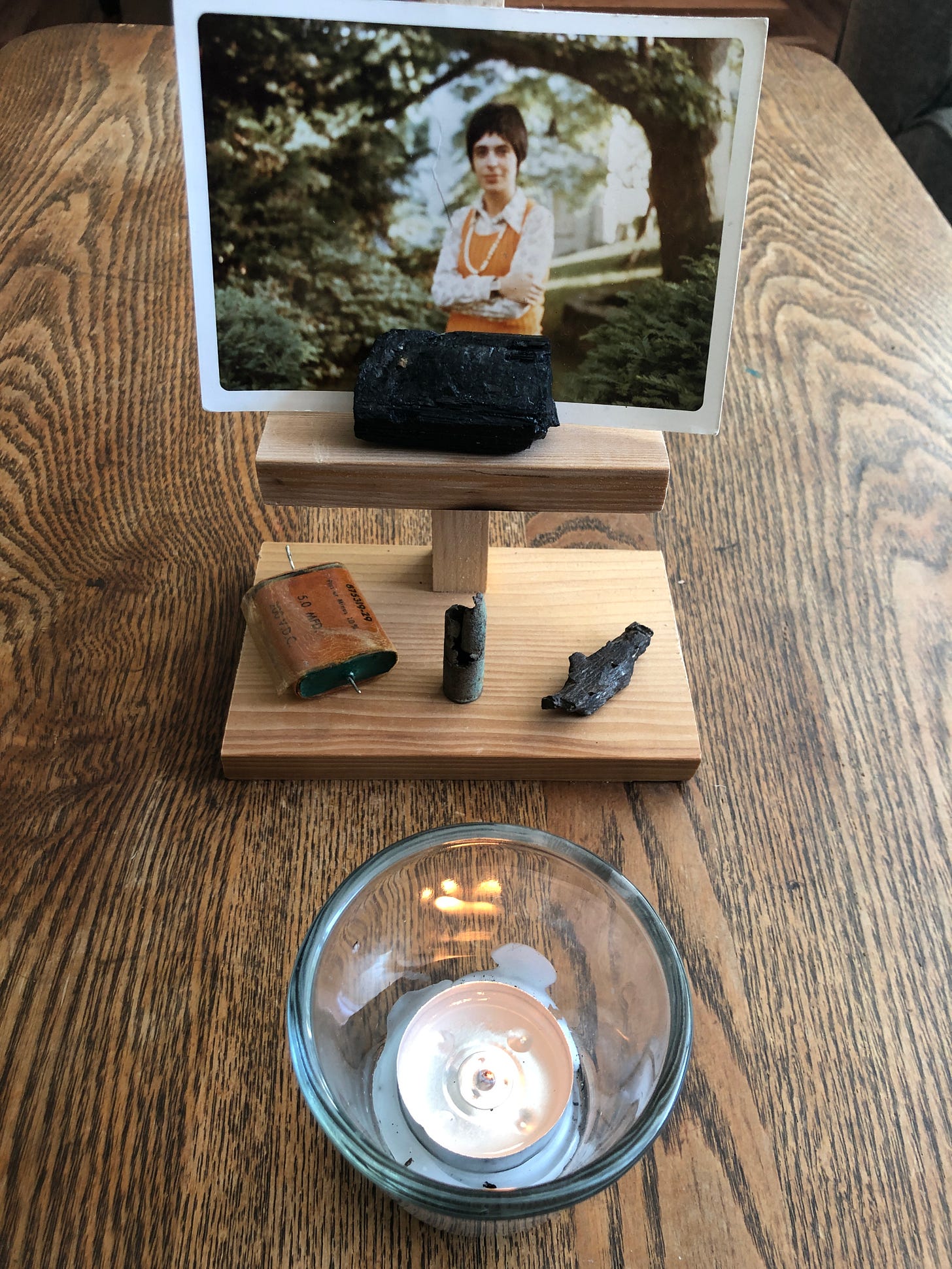My Mother's Mosquito
Nearly fifty years ago, my mother was killed by a mosquito bite. We could’ve made the world safer since then, but today a solution seems farther off than ever.
It happened so fast.
She started feeling sick on Monday or Tuesday; after that she was bedbound. I feel the slightest twinge of guilt, because I was so happy: Now I’ll have more time with her! In my defense, I was four.
It soon became clear this was no ordinary flu. The headache was crippling, she told my father, and the lethargy felt like there were weights pinning her limbs. On Friday evening, he bundled her in a shawl and gingerly steered her out the front door. She turned around one last time and I saw how drawn her face was, how wide her eyes. I never saw her again; she died a few days later.
Until earlier this week, when Dr. Anthony Fauci revealed his life-threatening brush with West Nile virus, I never knew what my mother’s last days might’ve felt like. “It was terrifying,” Fauci wrote in a NYTimes opinion piece. “I could not swing my legs over the side of the bed to sit up…I could not stand up without assistance and certainly could not walk.”
My mother died of encephalitis, not West Nile—though there’s an overlap in symptoms, and West Nile is often the cause of encephalitis, an inflammatory disease of the brain. Like Fauci, she contracted it through a random mosquito bite, likely on a family vacation to notoriously insect-ridden Sea Island, Georgia in August of 1975.
That summer, the United States was experiencing an unusual spike in encephalitis cases. But her case was an outlier; most years, nearly no one dies of encephalitis—least of all a healthy-seeming 37-year-old. Her case was deemed so unusual that the Armed Forces Institute of Pathology at Walter Reed performed the autopsy and issued a subsequent report.
Things are different today, though not necessarily for the better. As Dr. Fauci makes clear, climate change is expanding mosquito habitats and making it easier for them to proliferate. Because the disease is often asymptomatic, he estimates the actual number of infections numbers in the millions. In short, we’re going to see more cases of West Nile virus—potentially a lot more.
Dr. Fauci argues for partnerships to create effective vaccines, claiming: “there is no insurmountable scientific obstacle to developing safe and effective drugs for West Nile virus infection.” But it’s not the scientific hurdles that worry me—it’s the human ones. Large-scale public health initiatives have always involved the profit motive. But with studies estimating that the research and development costs of a new drug range from roughly $300 million to over $4 billion, the fact is that drugs that don’t have a quick pathway to profitability simply don’t get made.
Would we even trust such a drug? In the decades since my mother’s death, suspicion of institutions has become the norm, not the exception. The pandemic may have been the nail in the coffin for public trust in vaccines, even as one study suggests that in 2021 alone, COVID-19 vaccines saved in excess of 14 million lives worldwide, and possibly nearly 20 million. Even as our human-altered climate accelerates the creation of new plagues and revives long-dormant ones, such as anthrax, we’re less inclined than ever to trust vaccines that might protect us from them.
I grew up in an age of scientific optimism, one that now feels as quaint—and as deceptive—as vintage daguerreotype images of Sea Island, which tend to depict stately mansions rather than slaves laboring in malarial heat.
I don’t remember much about that last family vacation, but it’s entirely possible I saw the mosquito-control trucks that even today roll down Sea Island’s streets, trailing noxious clouds of pesticide. We know better than to believe pumping insecticide into the air is a solution, but we do it anyway. Instead, we could expend the resources and effort into creating a safe vaccine, but in the current environment it’s difficult to imagine that ever happening.
Which beings me back to my mother and her senseless death. Perhaps the worst thing my father ever told me was that at the end, when she could no longer speak, he said something banal and comforting—“it’ll turn around,” or “just wait and see.” She looked back at him with those wide eyes, and he knew she knew it was too late.
Perhaps nothing could have saved my mother, but what I’m feeling now is the hopefulness that died along with her. I know it’s silly, but I long for an era in which we might still believe that solutions to the big problems were even possible. West Nile virus is here to stay, but like climate change itself, it’s easier to tune it out than to do something about it.




How heartbreaking, Seth - I'm so sorry. And I didn't realize how much you look like her...
Seth. Your mom. I’m so sad and sorry to read this. How terrible for you, to lose your mom so young. And yes, it would be amazing if the world pulled its collective shit together and did the right thing once in a while. But hmmm, I’ve got no idea how to make that miracle happen. Sending a big hug to you. Thanks for writing this piece.